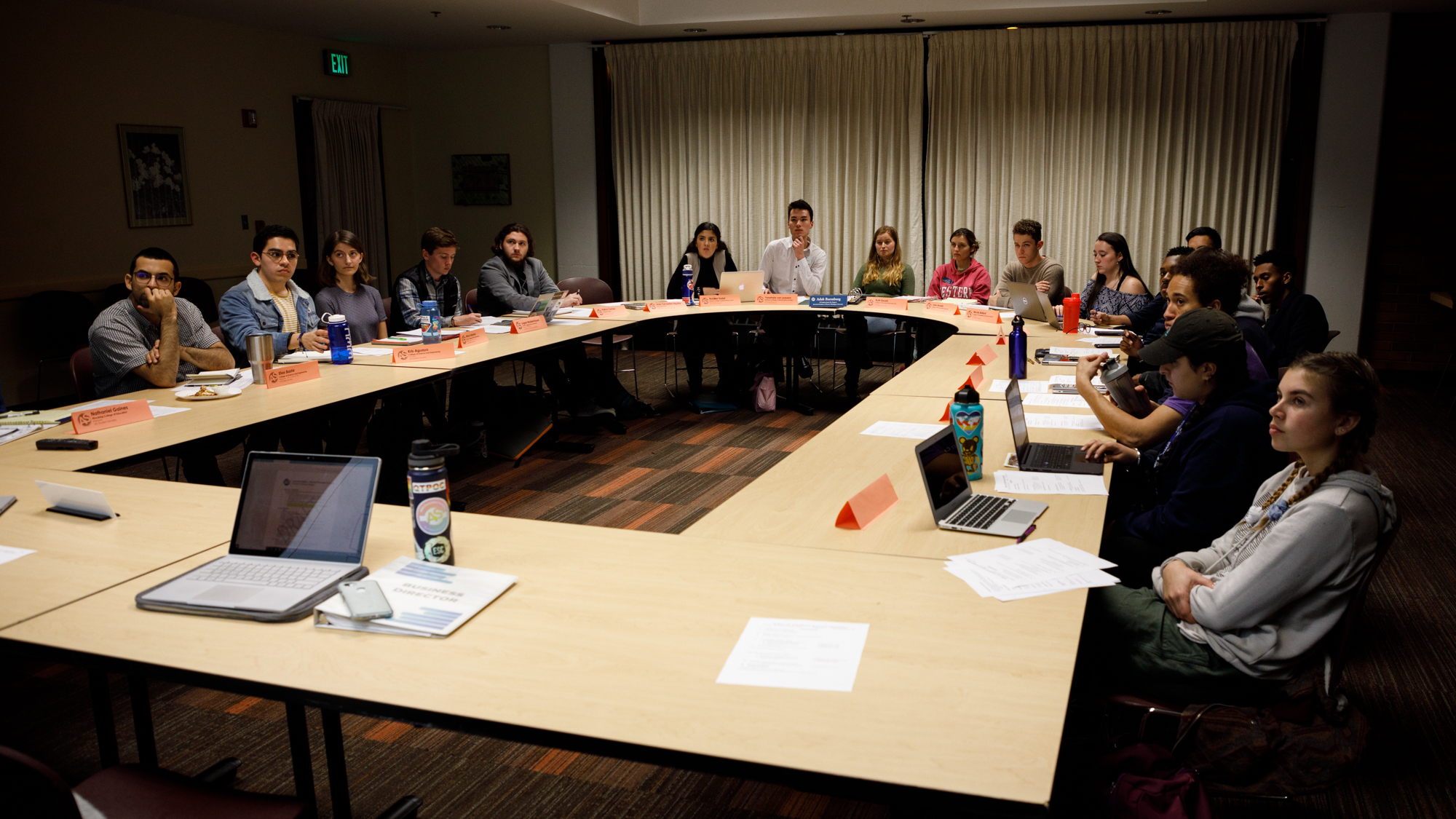The AS Student Senate during their meeting on Friday, Nov. 22. Joe Addison // AS Review
By Stella Harvey
At the Associated Students Student Senate meeting on Feb. 26, Patrick Czichas and Jose Cervantes-Aguilarm, senators for the Graduate School, Nathaniel Gaines, senator for the Woodring College of Education, and Luke Arnold, senator for the College of Fine and Performing Arts, were absent.
Constitution Changes
With a vote of 9-6-1, the Senate fell short of the two-thirds majority vote needed to make changes to the constitution. The proposed revisions would have moved the majority of the senate elections to spring quarter, with only senators for the Graduate School and at-large senators being elected in fall. They would have also changed the name of the senate pro-tempore position to the Senate Chair.
Maya Noesen, senator for Huxley College of the Environment, organized the by-laws sub-committee which crafted the revisions. Noesen presented the proposed changes and answered questions and concerns of other senators before the vote. Noesen said having the majority of senate elections in spring quarter would allow senators to have a full academic year to work on projects and have more of a say in the year-long committees they sit on. Most faculty committees set their year-long agendas in fall, leaving senators who don’t start till the end of fall quarter behind, Noesen said.
Nicole Ballard, senator for the College of Humanities and Social Sciences, said in the meeting that she would vote no on the changes because she believed having both senate and Executive Board elections in the same quarter would be too much work for the AS Elections Coordinator. She also said having some senators start in spring and others in fall could lead to an uneven power dynamic.
Ranulfo Molina, senator for the College of Humanities and Social Sciences, said having elections in the spring would be unfair to first-year and transfer students because it wouldn’t give them the opportunity to run for a position representing their college. Senator At-Large Sargun Handa said that those students could potentially run for the At-Large positions, which would still be open in the fall, had the revisions passed.
The senate agreed to continue to work on revising the constitution and by-laws.
Credit Hour Policy
Senate Pro-Tempore Adah Barenburg discussed the Policy of Credit Hours that was voted down at the Faculty Senate Meeting on Feb. 24. Barenburg said that the policy seeks to standardize the credit hour so class time and work-loads are equitable across Western colleges.
According to the Academic Coordinating Commission’s Policy of Credit Hours, a single credit hour is equal to about three hours of work each week. Usually, this looks like either one hour of direct instruction and two hours of additional work per week outside of class, or two hours of direct instruction and one hour of work outside of class each week. An hour of direct instruction is 50 minutes, according to the Policy of Credit Hours. The policy revisions, which were not passed, stipulated that classes that meet for less than 48 minutes of direct instruction per credit hour are breaking the policy.
Faculty Senate President Jeff Young said in an email that the Faculty Senate did not pass the revisions because they do not meet the ACC’s rationale from 2017, which states that a credit hour policy should be consistent, equitable, in compliance with Washington State law and allow for flexibility.
Barenburg said that she plans on organizing meetings to discuss this policy further with senators.

